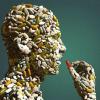
PIRACETAM DOSAGE - Why you should be taking 4.8 grams / dose
#151
Posted 11 July 2013 - 08:56 PM
#152
Posted 28 July 2013 - 02:05 PM
I've read some bad reviews about your site, but I think that the positive ones outweigh them. I'm going to find out soon
Just wanting to know how my order #248391596795896 is doing, and when is the estimated arrival date?
Thanks so much! You can send me a private message on this forum requesting my phone number if you want to speak to me personally.
I would email you, but it seems that your email, synapse@cerebralhealth.com is no longer a valid email.
I will be sure to leave you positive reviews on a couple forums, including this one, and on reddit.com, if I get my shipment in soon xD
Edited by SlimNm, 28 July 2013 - 02:05 PM.
#153
Posted 28 July 2013 - 11:28 PM
#154
Posted 29 July 2013 - 12:30 AM
They are more expensive than many other suppliers, but when you think your buying quality, it isn't an issue to spend a bit more.
The problem now seems that CerebralHealth......(the username of a guy on here) who I think either runs, or is a part of the Company, has gone from not reponding to messages very often... to not at all.
Don't think the email address from CH is even valid anymore.
He used to be quick to defend the Company when people labeled it a scam and what not, but iy doesn't aspire much confidence for a customer.
I don't think I will be using them again.
Edited by Brundle99, 29 July 2013 - 12:32 AM.
#155
Posted 29 July 2013 - 02:29 AM
#156
Posted 29 July 2013 - 09:34 AM
I think the Piracetam I bought from them is ok although not sure about potency, it says 99% on the bag but who knows. It is crystalline white powder similar consistency to sugar, which is what it's supposed to look like from research.
I've only ever had subtle effects from the rides I've tried from 800-4.8 in the past, so could be I just haven't found my idea dose, I hope it's not a question of potency anyway.
I've just bough Centrophenoxine from a different supplier, does anyone have good experiences with that combo?.
I wish there was a way to tell what your getting, because powder could be anything....
I'm going to try and get something on prescription as I have memory problems and I'm only 31.
#157
Posted 29 July 2013 - 09:47 AM
A bit worrying really, the least you would expect is that your ingesting the product you paid for and not something else.
I think the Piracetam I bought from them is ok although not sure about potency, it says 99% on the bag but who knows. It is crystalline white powder similar consistency to sugar, which is what it's supposed to look like from research.
I've only ever had subtle effects from the rides I've tried from 800-4.8 in the past, so could be I just haven't found my idea dose, I hope it's not a question of potency anyway.
I've just bough Centrophenoxine from a different supplier, does anyone have good experiences with that combo?.
I wish there was a way to tell what your getting, because powder could be anything....
I'm going to try and get something on prescription as I have memory problems and I'm only 31.
If you search for doc simon then you'll find online vendor that sells Piracetam tablets made by Merck and other big pharmas if you feel more comfortable with that (price almost same gram for gram if you order a few packages at the same time, I have ordered several times without no hiccups beyond a bit of wait (around 10days and that's from one EU country to another)) - there's is no easy/cheap way to validate no-name powders. I would seriously consider adding cod-liver oil at about 5-10ml a day in order to get big dose of DHA/EPA along with vitamin a/d - for me this is, even by itself, a stronger/more "felt" medicine as compared to Piracetam.
#158
Posted 29 July 2013 - 10:23 AM
I also take a centrum multivitamin with Piracetam.
I was a little worried about all these things adding to too much blood thinning though.
Some people say add MSG and calcium too but I don't know.
I still have three quarters of the 1k bag from CH so may try adjusting dose or adding FO again.
I have a thyroid condition which I have heard this may affect my response with Piracetam. Hope not!.
I've been try Piracetam on and off since December and didn't get on well with the choline bitartrate but Centrophenoxine makes you feel a bit more energetic and will be more bioavailabile and top quality.
I welcome any comments!
#159
Posted 29 July 2013 - 03:08 PM
#160
Posted 29 July 2013 - 05:33 PM
It's not nonsense in any way, everyone is trying to help each other out, and that's the purpose of this is it not??.
#161
Posted 29 July 2013 - 06:50 PM
I've recently tried 4.8g and it was no different; probably worse than how 2.4g affects me.
Seems I require much smaller doses, such as a mere 400-450mg.
#162
Posted 29 July 2013 - 07:13 PM
The fish oil a lot of people agree its synergistic with Piracetam but can't say I tried it long enough to really see the effects.
I have read in forums that some people respond to doses as low as 300mg, I'm going to start again at 500mg and change up every 2 weeks by 250mg until I notice things. Probably wont go any higher than 9.6g if it gets that high.
#163
Posted 29 July 2013 - 07:32 PM
Edited by xsiv1, 29 July 2013 - 07:33 PM.
#164
Posted 29 July 2013 - 07:50 PM
If the response is 2.2 then a 1g bag will last ages.
Never tried with Alpha GPC but only because I'm hypothyroid and AGPC is highly refined Soy Lecithin, which will probably make my symptoms worse.
There's also a forum on here about high dose fish oil with Piracetam that's interesting, and people swear by it.
#165
Posted 26 February 2014 - 10:10 AM
Recently took a trip to Macao and decided to grab up a box of Nootropil from a local pharmacy. Cost was approximately $6USD for 90 x 800mg tablets.
I found it interesting that the recommended dosage was in fact 4.8g per day for the first few weeks. But it's suggested to drop down to a maintenance dose of 2.4g per day after that.
I found it more interesting that after 4 days of taking ~4.8g per day I was actually noticing effects from piracetam. This is after accepting defeat and thinking it was totally ineffective for me personally since I've done 3-4 week trials of diligently dosing powder each day with absolutely zero effects on cognition.
I looked at the ingredients on these tablets and there seems to be a lot of mannitol. I'm guessing the mannitol is improving delivery of the piracetam in the tablets across the blood brain barrier. So since I've still got almost a full kilo of piracetam I ordered up some mannitol from ebay and made a solution of piracetam + mannitol. I reduced it to a solid form and ground it up again.
So I've got about 100g of piracetam and mannitol mix that I plan on doing a trial with here in the next couple of days to see if mannitol is the key to piracetam efficacy for me personally. Will update when I get a chance. Attached is a scan of the insert provided with the Nootropil I bought.
What's your current dosage, manic_racetam? Did you continue with the suggestion of 4.8g per day for the first few weeks, and 2.4g thereafter?
#166
Posted 27 March 2014 - 09:52 AM
Complete noob here, so please forgive me if I say something off. I got to this forum in the last few days while searching for more information on piracetam. I recently purchased nootropil 800 (piracetam 0.8 gm). Took my first pill yesterday evening and it kicked in within an hour with the effects lasting upto 5 hours. I feel as though 4.8 grams maybe way too high for me. A little background, I have no issues as such but am trying to use paracetamol for the heightened clarity and ability to focus. What I am looking for is help with dosage amounts and some guidelines for long term use.
I really appreciate the help and sorry again if I made a mistake in my post.
Thanks.
#167
Posted 03 May 2014 - 12:08 AM
I think anything over 800mg is too high. Piracetam causes oxidative stress in the hypothalamus.
MDA[a marker for oxidative stress]…. increased in cortex and hippocampus and in cortex, hypothalamus and striatum by the higher dose of vinpocetine or piracetam, respectively along with decreased TAC (total antioxidant capacity)….at their high concentration, these drugs exhibit pro-oxidant properties and increase free radical production or act as a free radical….[Ref.]
The high dosage that this study refers to is 300mg/kg.
For somebody who weighs an average weight of 68kg, this would be equivalent to 20.4g, but when converted to an equivalent human dosage, it would be 3.25g.
http://selfhacked.co...with-piracetam/
#168
Posted 03 May 2014 - 01:53 AM
We studied the role of oxidative stress and the effect of vinpocetine (1.5, 3 or 6 mg/kg) and piracetam (150 or 300 mg/kg) in acute demyelination of the rat brain following intracerebral injection of ethidium bromide...
Edited by Metagene, 03 May 2014 - 01:54 AM.
#169
Posted 03 May 2014 - 03:01 AM
But "high" doses of piracetam made these effects worse. Why is that?
#170
Posted 03 May 2014 - 04:16 AM
But "high" doses of piracetam made these effects worse. Why is that?
If you look at the study again it merely states after a intracerebral injection of ethidium bromide high doses of piracetam and vinpocetine increased malondialdehyde (a marker for oxidative stress) but in turn increased gutothioine and lowered serum nitric oxide. This does not imply piracetam alone increases oxidative stress.
Edited by Metagene, 03 May 2014 - 04:20 AM.
#171
Posted 03 May 2014 - 04:28 AM
Although choline administration raised choline content about 50% in striatum and cortex, changes in acetylcholine levels were much more subtle (only 6-10%). No significant changes following choline administration were observed in the hippocampus. However, piracetam alone markedly increased choline content in hippocampus (88%) and tended to decrease acetylcholine levels (19%).
Edited by Metagene, 03 May 2014 - 04:32 AM.
#172
Posted 03 May 2014 - 04:51 AM
Why would piracetam only increase OS when ethidium bromide is also added?
EB is irrelevant. The point is piracetam increases OS in the hypothalamus in an animal model of acute demyelination. I don't see why this wouldn't be the case in normal animals.
Please clarify your point with the last post.
Edited by Joe Cohen, 03 May 2014 - 04:55 AM.
#173
Posted 03 May 2014 - 12:29 PM
Edited by Metagene, 03 May 2014 - 12:33 PM.
#174
Posted 03 May 2014 - 03:14 PM
And why isn't its marker MDA a good indicator? Yes, it increased glutathione A LITTLE, which makes the situation a bit better, but total antioxidative capacity decreased.
The measure of antioxidant capacity (AC) considers the cumulative action of all the antioxidants present in plasma and body fluids, thus providing an integrated parameter rather than the simple sum of measurable antioxidants. The capacity of known and unknown antioxidants and their synergistic interaction is therefore assessed, thus giving an insight into the delicate balance in vivo between oxidants and antioxidants. Measuring plasma AC may help in the evaluation of physiological, environmental, and nutritional factors of the redox status in humans. Determining plasma AC may help to identify conditions affecting oxidative status in vivo (e.g., exposure to reactive oxygen species and antioxidant supplementation).
http://www.ncbi.nlm....pubmed/11121717
I decided to look at the full study because the abstract isn't completely clear.
MDA increases with piracetam over ethidium control. High dosage piracetam increased MDA the most out of all the groups.
Malondialdehyde is generated from reactive oxygen species (ROS), and as such is assayed in vivo as a bio-marker of oxidative stress.[3]
https://docs.google....it?usp=drivesdk
TOTAL ANTIOXIDANT CAPACITY decreases with piracetam in both dosages (statistically significant), but not really vinpocetine (never had an issue with vinpocetine). Strangely, TAC went up a little in the higher dosage, but was still significantly lower. My guess is at a certain level of OS, GSH/other endogenous antioxidants production ramped up and combated the OS, but reduced glutathione glutathione isn't an unlimited resource. But still, piracetam likely contribute to OS burden by increasing MDA and possibly other oxidants.
https://docs.google....it?usp=drivesdk
Glutathione increases with the higher dosages of piracetam. But, again, chronic usage doesn't appear to be wise given that glutathione isn't an unlimited resource. Combine sleep deprivation, toxins, etc..and you get too much of an OS burden...
https://docs.google....it?usp=drivesdk
"In case of piracetam, the
I think the author sums up the findings well in their discussion.
Edited by Joe Cohen, 03 May 2014 - 04:01 PM.
#175
Posted 03 May 2014 - 03:38 PM
Demyelinating diseases of the central nervous system are a heterogeneous group of chronic inflammatory disorders, the hallmark of which is loss of myelin sheath and nerve conduction deficits leading to motor and/or sensory dysfunction and are the leading cause
of nontraumatic neurological disability in young adults (Hu and Lucchinetti, 2009). The spectrum of demyelinating disorders includes 'autoimmune' inflammatory demyelinating diseases, the inflammatory demyelinating diseases of infectious aetiology, and the de- myelinating or dysmyelinating diseases of genetic/hereditary background. In addition, primary demyelination is present in other conditions, such as brain ischaemia and in- toxication (Lassmann, 2001). Multiple scle- rosis is by far the most common inflammato- ry demyelinating disease leading to focal plaques of primary demyelination with a var- iable degree of axonal and neuronal degener- ation (Love, 2006; Lassmann et al., 2007).
Oxidative stress has been implicated in both normal aging and in various neuro- degenerative disorders. In the brain, the high content of polyunsaturated fatty acids, the high utilization of oxygen account for the susceptibility to free radical damage. The mechanisms of tissue injury in demyelinating diseases of the central nervous system are poorly understood but increasing evidence support a role for oxidative stress due to an imbalance between free radicals generation and endogenous antioxidant mechanisms. Reactive oxygen species, nitric oxide, and proinflammatory cytokines released by mon- ocyte-derived macrophages contribute to neu- roinflammation, demyelination and axonal damage and disease progression in multiple sclerosis (Mirshafiey and Mohsenzadegan, 2009; Smith, 2011; de Vries et al., 2011).
Multiple sclerosis patients showed increased generation of superoxide free radicals in blood (Glabinski et al., 1993), elevated levels of thiobarbituric acid reactive substances and reduced protein sulfhydryl groups in cerebro- spinal fluid and serum (Mitosek-Szewczyk et al., 2010), suggesting increased free radical production and lipid peroxidation. Oxidized lipids and DNA were highly enriched in ac- tive multiple sclerosis plaques (Haider et al., 2011). Evidence also implicates increased nitric oxide generated by the inducible form of nitric oxide synthase (iNOS) in the in- flammation and demyelination in multiple sclerosis. Increased iNOS activity has been demonstrated in monocytes/macrophages and/or astrocytes in demyelinating lesions of postmortem tissues in multiple sclerosis (Ba- gasra et al., 1995; Oleszak et al., 1998; Liu et
al., 2001). Nitric oxide is increased in serum of patients with multiple sclerosis (Ibragic et al., 2012). Nitric oxide is likely to be in- volved in axonal and neuronal injury in de- myelinating conditions (Kapoor et al., 2000; Garthwaite et al., 2002).
Nitric oxide is an important molecule in- volved in synaptic transmission and regula- tion of vascular tone. Nitric oxide is produced within the central nervous system from L- arginine by a constitutive (neuronal) form of nitric oxide synthase (nNOS), an endothelial form in vascular endothelium (eNOS) or an inducible form (iNOS) localized to glia, and requires activation by endotoxin and cyto- kines (Moncada and Bolaños, 2006). The production of nitric oxide is increased in brain and serum of multiple sclerosis patients (De Groot et al., 1997; Liu et al., 2001; Koch et al., 2008). Nitric oxide is a free radical and can react with many other free radicals e.g., superoxide radical generating peroxynitrite radical, capable of causing oxidative changes to macromolecules e.g., proteins, lipids and DNA (Moncada and Bolaños, 2006). Elevated nitric oxide concentrations which occur in neuroinflammatory states can thus result in neurodegeneration. Increased levels of nitric oxide causes axonal degenera- tion (Kapoor et al., 2000; Garthwaite et al., 2002) and activation of nNOS in oligoden- drocytes leads to oligodendrocyte injury re- sulting in demyelination (Yao et al., 2010). Evidence also implicates iNOS in the in- flammation and demyelination of optic neuri- tis, where localized loss of myelin proteins, myelin breakdown, and the presence of iNOS and nitrotyrosine were associated with in- flammatory infiltrates on the edges of the nerve and reactive astrocytes (Tsoi et al., 2006).
http://www.excli.de/...32012_proof.pdf
#176
Posted 03 May 2014 - 03:55 PM
Metagene,
You mean well, but don't fall prey to your apriori belief that piracetam can't have side effects.
Your response doesn't address any of my points. As a result, I will end the discussion here.
Be well,
Joe
#177
Posted 03 May 2014 - 04:55 PM
When exactly did I say I believe piracetam was side effect free? FYI I followed up my own response prior to reading your post. In any case the information sited does very little to support your theory that brain fog and drowsiness caused by piracetam is a result of increased oxidative stress in the hypothalamus and that's all.
Oxidative stress has been implicated in both normal aging and in various neuro- degenerative disorders.
Edited by Metagene, 03 May 2014 - 05:08 PM.
#178
Posted 03 May 2014 - 11:42 PM
#179
Posted 04 May 2014 - 04:41 AM
I can't post a link since I am a new member but does the study "Analgesic activity of piracetam: Effect on cytokine production and oxidative stress" (available at sciencedirect.com) offer anything relevant to either of your arguments?
#180
Posted 04 May 2014 - 12:25 PM
Edited by Metagene, 04 May 2014 - 01:16 PM.
Also tagged with one or more of these keywords: piracetam, racetam, memory, nootropic, cognitive, cognition, learning, pramiracetam, oxiracetam, aniracetam
0 user(s) are reading this topic
0 members, 0 guests, 0 anonymous users




















































